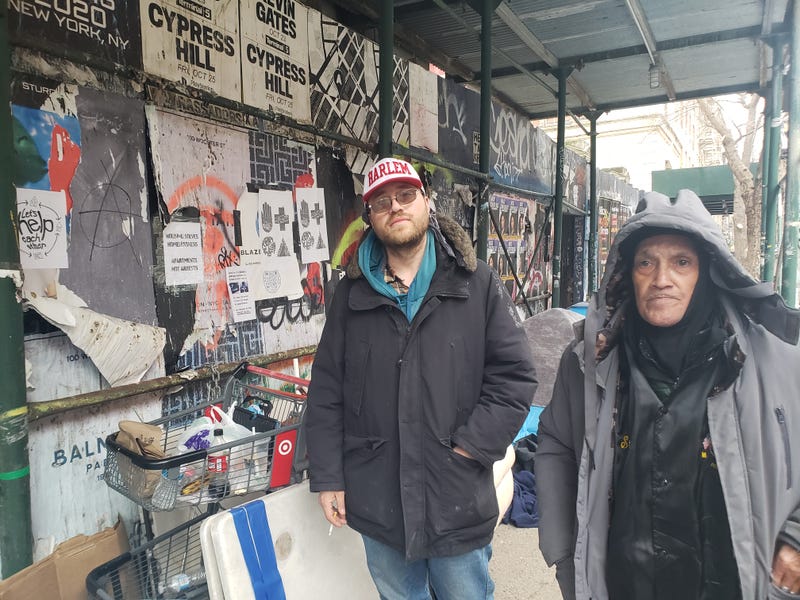
NEW YORK (1010 WINS) -- A sweep team of police, sanitation workers and social workers without notice destroyed tents and bedding while clearing a tent encampment that homeless New Yorkers were using for shelter near Tompkins Square Park on Thursday.

Mayor Eric Adams has emphasized policies like 24-hour advance notice and refraining from destroying belongings as humane elements of his homeless clearance program that has already resulted in the dismantling 239 encampments around New York City.
“This encampment was removed as an emergency measure, after the team determined that it was blocking most of the sidewalk, posing a risk to public safety," said an Adams spokesperson. "As the mayor has said repeatedly, we are committed to handling these interactions with respect and helping New Yorkers maintain their dignity.”
The encampment took up about half of the sidewalk, and multiple pedestrians walked past while interviews with residents were conducted. If the city deemed the encampment as partially obstructing the sidewalk, the standard protocols would still apply, and the 24-hour notice would still be necessary.
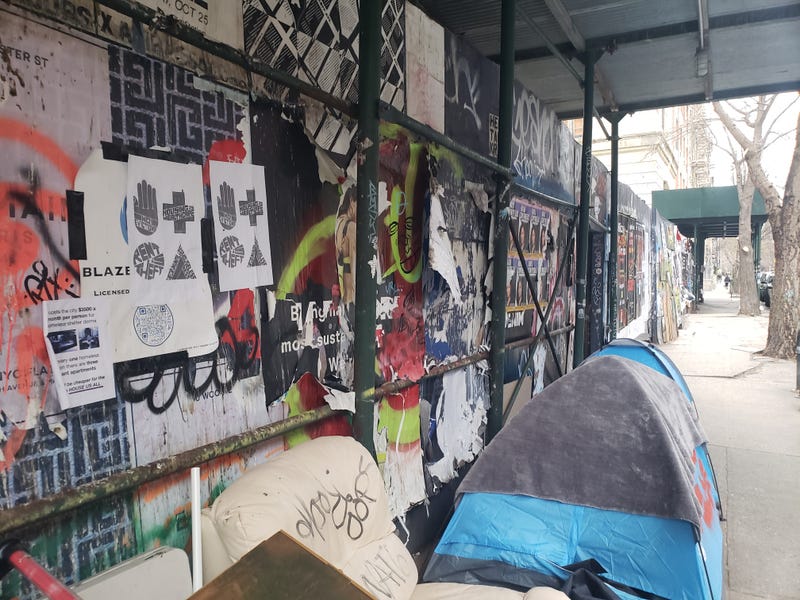
The sweeps are attended by social workers who offer services to the people who were living in the encampments, but so far only five people have accepted the offer, according to City Hall.
One of the residents of the camp said he had a bad experience with the shelter system that makes him wary of accepting offers from social workers.
“Homeless shelters and safe havens are abusive environments. The staff belittle people. They can curse people out. They can threaten people, and they cover for each other. When a homeless person tries to report shelter abuse they are silenced,” said camp resident Johnny Grima. “Staff hold all the power.”
Grima says he was falsely accused of hitting someone after he tried to report a staff member who was harassing and threatening him while he was living in a Bowery shelter.
“There’s a tradeoff for sleeping on the streets,” he said. “You have freedom but also harassment from the police and what not. And also you're not safe at any time because you're outside, and crazy people have access to you.”
Jose Hernandez, 71, lived in the encampment with his wife Amalia Jordan. The sweep team that dismantled the encampment on Thursday destroyed their tent.
This was his second time getting swept. He says he lost his clothes and cans of food in the last one, which was part of a different wave of sweeps by the city.
“The sanitation truck stands there, and they start throwing everything in the truck,” he said. “I was living there… They throw all the stuff out, clothing. They were begging but they didn’t care.”
After that sweep he tried the shelter system, but he decided he preferred living on the street after he got robbed twice in the shelter he was staying at.
Now, facing uncertainty after losing property in a sweep for the second time, Hernandez worries for his wife. He said it’s harder for her to stay on the street because she’s a woman. He worries that if he’s not around to protect her, she could be attacked.
For those who have been traumatized by the shelter system, don’t trust the city or want to maintain autonomy, sweeps can be devastating events.
“You have to start from scratch again,” said Grima just the day before the camp he was living in was swept. “If you don’t have anything, you have to sleep on the subway or maybe in a bank lobby.”
Over 1,000 additional NYPD officers have been allocated to subways in 2022, an NYPD chief said at a budget hearing earlier this month. The influx of officers has led to 471 summonses for lying down in subway cars, a 37% increase from 2021, according to the New York Daily News.
A team swept the camp near Tompkins Square Park around 11 a.m on Thursday. Those who were present were able to keep their belongings.
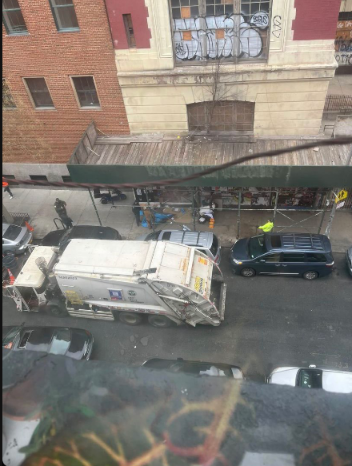

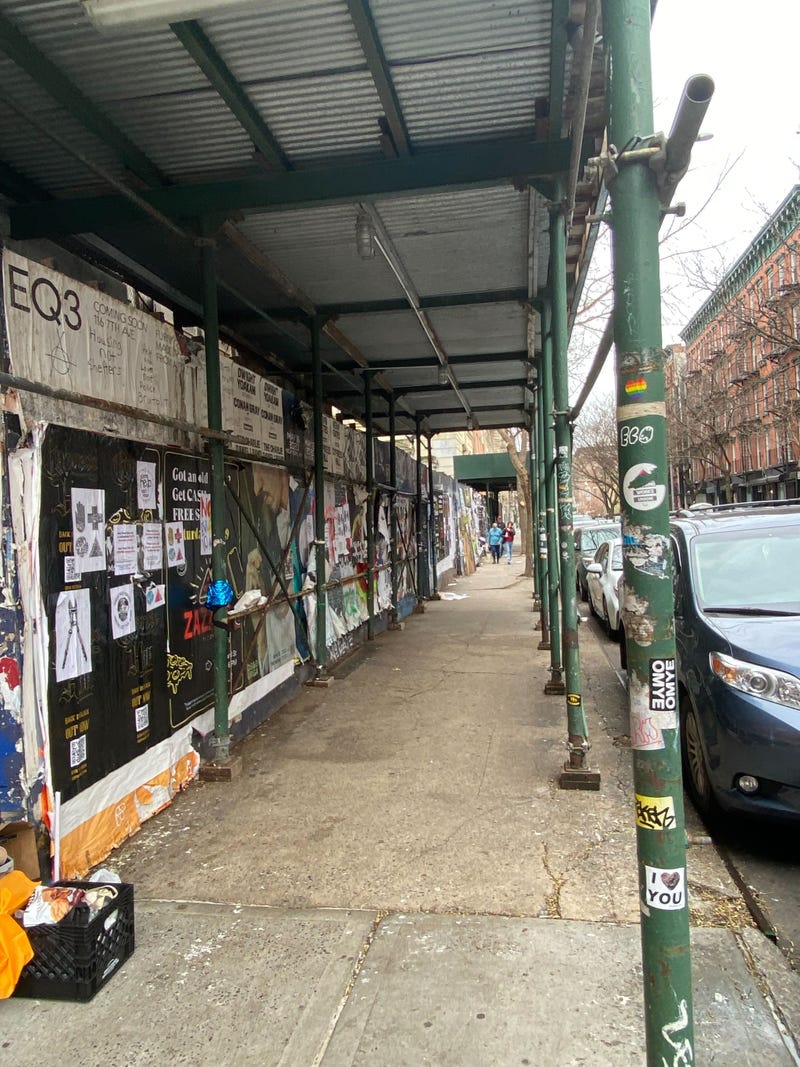
A friend lied and claimed Grima’s tent to save it from being trashed, so he only lost a chair. Some of his neighbors weren’t so lucky.
Kevin, a man who was living in the camp, lost his tent and bedding.
Both Kevin and Grima say they plan to rebuild the camp in the same spot tonight. They resent the sweeps and see rebuilding as a simultaneous act of survival and civil disobedience.
Derick DeMaria, a local mutual aid worker, said he witnessed similar destruction of property at a sweep under the Brooklyn Queens Expressway in Williamsburg on Monday.
While attempting to save a friend’s property during a different sweep in Tompkins Square Park, DeMaria said he was arrested for possession of stolen property. He said he's currently suing the NYPD for false imprisonment.
Both DeMaria and Grima see reallocation of empty housing units as a preferable solution to sweeps and temporary shelter.
Grima repeatedly alluded to the United States Interagency Council on Homelessness estimate that 91,271 people are homeless in New York State — the most of any state in the country. He’d then point to a 2017 New York housing vacancy survey that found that 245,000 units were empty in New York City alone. Grima had posted flyers with statistics like those all over the encampment.
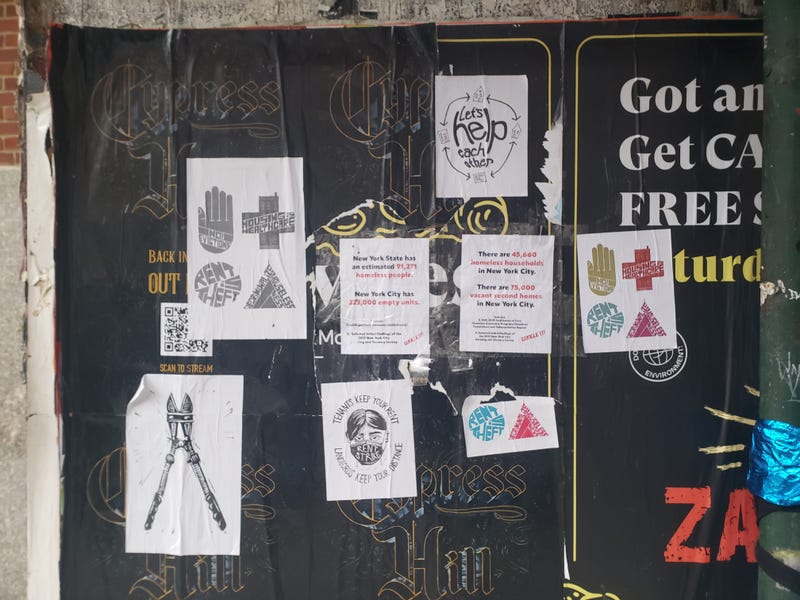
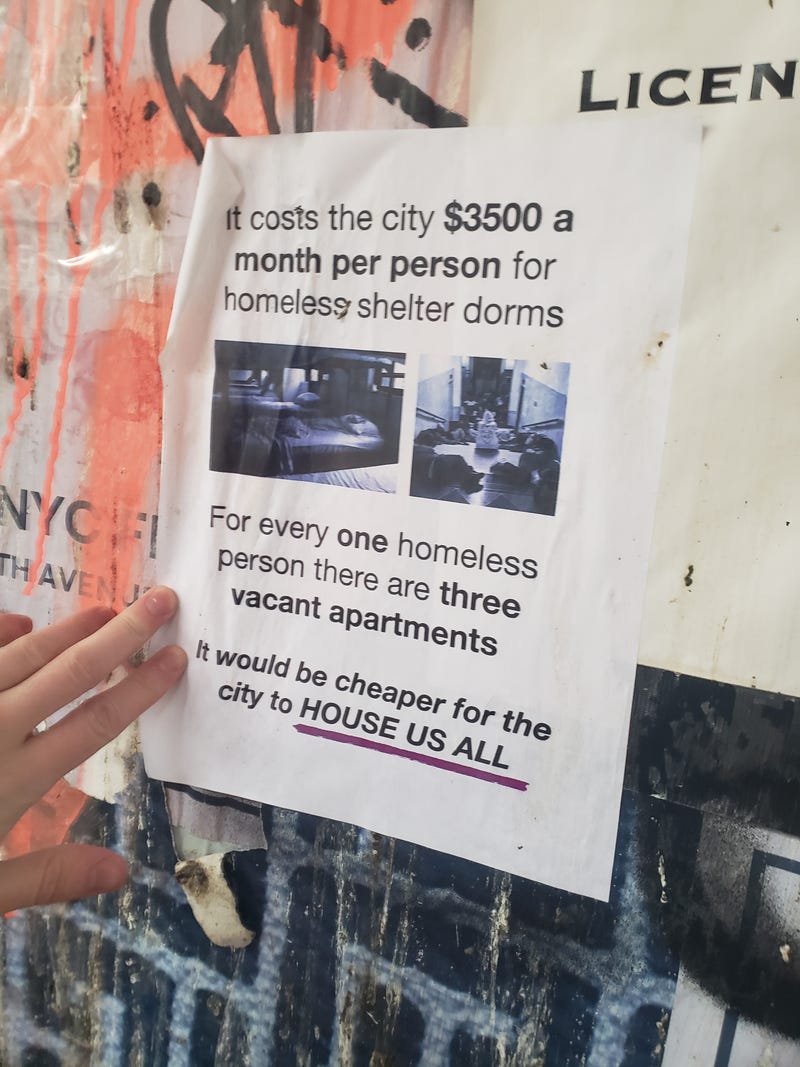
DeMaria said documentation is an important step for protecting homeless New Yorkers from losing their property in sweeps, but that further action is needed to help your neighbors suffering from homelessness.
“First of all, just start with having a conversation with your neighbors, I mean that’s step one. The second thing that I love doing is I have a bunch of rechargeable batteries for cell phones. Give them out and come back at the end of the day or the next day. Pick them up and recharge them. That’s a great way to start a conversation, and then you can talk about needs,” said DeMaria. “For me the most important thing is spending time, because it’s boring. It’s horrible. And if you get to sit with someone for an hour or two hours it’s good for everybody. It’s about building community.”


